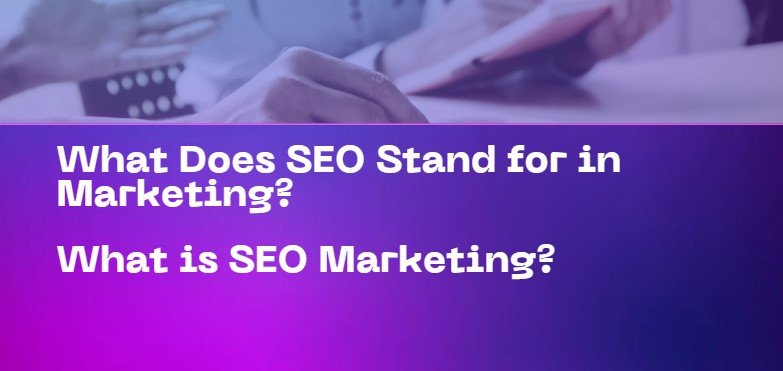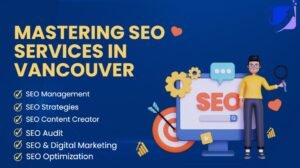In the ever-evolving world of digital marketing, Search Engine Optimization (SEO) plays a crucial role in helping businesses achieve online visibility and success. SEO is more than just a buzzword; it’s a fundamental strategy that can make or break your online presence. In this article, we will explore what SEO stands for in marketing, delve into the intricacies of SEO marketing, and uncover how it can benefit businesses in today’s digital age.
Understanding SEO: The Basics
SEO stands for Search Engine Optimization. It is the process of optimizing a website to improve its visibility on search engines like Google, Bing, and Yahoo. When users search for specific keywords related to your business or industry, SEO ensures that your website appears prominently in the search engine results pages (SERPs). The goal of SEO is to increase organic (non-paid) traffic to your site, enhancing both the quantity and quality of visitors.
The Importance of SEO in Marketing
In the digital marketing landscape, SEO is a cornerstone strategy. It helps businesses attract potential customers who are actively searching for products or services. Unlike traditional advertising, where you push your message to a broad audience, SEO allows you to pull in users who have expressed interest in what you offer. This targeted approach leads to higher conversion rates and a better return on investment (ROI).
Key Components of SEO
- Keyword Research: Identifying relevant keywords that potential customers are using in their search queries is the foundation of SEO. Tools like Google Keyword Planner, SEMrush, and Ahrefs help marketers discover high-volume and low-competition keywords to target.
- On-Page SEO: This involves optimizing individual pages on your website to rank higher in the SERPs. Key elements include optimizing meta tags, headings, content, and images. On-page SEO ensures that search engines understand the context and relevance of your content.
- Off-Page SEO: Building your website’s authority through backlinks from reputable sources is essential. Off-page SEO focuses on external factors like link building, social media marketing, and influencer outreach to enhance your site’s credibility.
- Technical SEO: This aspect involves optimizing the technical elements of your website, such as site speed, mobile-friendliness, and crawlability. Ensuring that search engines can efficiently index your site is crucial for SEO success.
- Content Marketing: High-quality, informative, and engaging content is at the heart of SEO. Creating valuable content that addresses the needs and interests of your audience not only attracts visitors but also encourages other sites to link back to your content.
What is SEO Marketing?
SEO marketing refers to the strategic use of SEO practices to promote a business or brand online. It involves a combination of techniques aimed at improving a website’s ranking, driving organic traffic, and ultimately increasing sales and conversions. SEO marketing is a long-term strategy that requires ongoing optimization and adaptation to changing search engine algorithms.
Benefits of SEO Marketing
- Increased Visibility: By optimizing your website for search engines, you increase the likelihood of appearing in the top search results, which enhances your brand’s visibility and recognition.
- Cost-Effective: Compared to paid advertising, SEO marketing is a cost-effective strategy. While it requires an investment of time and resources, the long-term benefits far outweigh the costs.
- Targeted Traffic: SEO attracts users who are actively searching for information related to your products or services. This targeted traffic is more likely to convert into leads or customers.
- Enhanced Credibility: Websites that rank high in search results are often perceived as more credible and trustworthy by users. A strong SEO strategy helps establish your authority in your industry.
- Competitive Advantage: Implementing effective SEO marketing can give you a competitive edge over businesses that neglect their online presence. Staying ahead in the SERPs can lead to increased market share.
Implementing an SEO Marketing Strategy
- Set Clear Goals: Define what you want to achieve with your SEO marketing efforts. Whether it’s increasing traffic, generating leads, or boosting sales, having clear goals will guide your strategy.
- Conduct Comprehensive Keyword Research: Identify the keywords and phrases that are most relevant to your business. Focus on both short-tail and long-tail keywords to capture a diverse audience.
- Optimize Your Website: Ensure that your website is optimized for both users and search engines. This includes improving site speed, ensuring mobile responsiveness, and creating a logical site structure.
- Create High-Quality Content: Develop content that provides value to your audience. This can include blog posts, articles, videos, infographics, and more. Focus on addressing the pain points and interests of your target audience.
- Build Backlinks: Engage in link-building activities to earn backlinks from reputable websites. This can involve guest blogging, collaborating with influencers, and leveraging social media platforms.
- Monitor and Analyze Performance: Use tools like Google Analytics and Google Search Console to monitor your website’s performance. Analyzing data helps you understand what’s working and what needs improvement.
- Stay Updated on SEO Trends: The world of SEO is constantly evolving. Stay informed about the latest algorithm updates and industry trends to ensure that your SEO marketing strategy remains effective.
Conclusion
SEO is an indispensable component of modern marketing. By understanding what SEO stands for and how SEO marketing works, businesses can harness the power of search engines to drive organic traffic, increase brand visibility, and achieve long-term success. Whether you’re a small business owner or a digital marketing professional, investing in SEO is a strategic move that can yield substantial returns. Embrace SEO marketing as a core part of your digital strategy and watch your online presence flourish.



